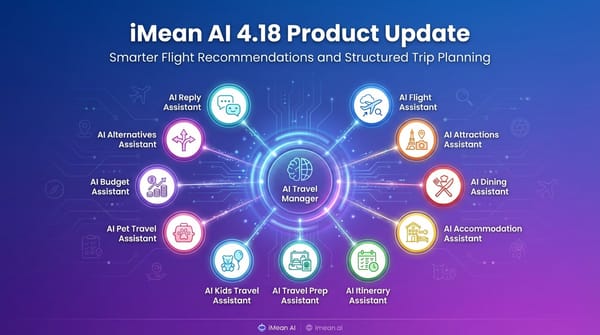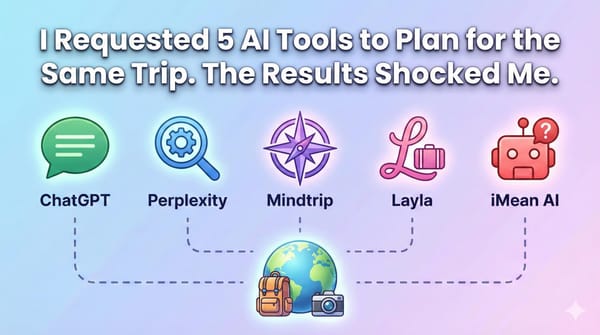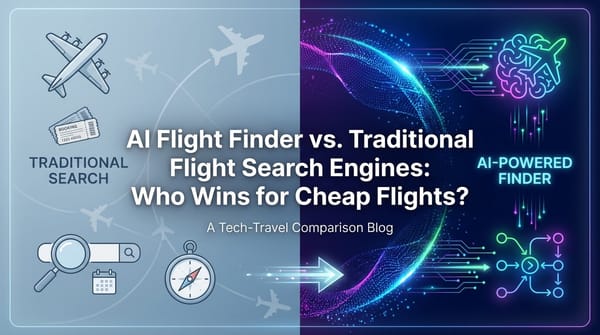Firstly, to see which AI travel planner is truly worth using in 2025, I gave the same complex prompt to five different platforms. This wasn’t a simple “book me a hotel” request. It included:
Prompt:
Hi! My friends and I (4 total) are planning a flexible summer trip across Central and Eastern Europe. We’re flying in from different cities—New York, Toronto, Sydney, and Tokyo—but we’d like to arrive in Kraków around the same time, ideally between July 5–7.
From there, we want to visit Prague, Ljubljana, and end in Dubrovnik, spending roughly equal days in each city. We’re open to train or flight segments between cities, as long as travel time is reasonable.
We’d love a smart itinerary that minimizes backtracking and considers flight prices, connection ease, and check-in times.
For hotels, we prefer places in safe, quiet neighborhoods, ideally walkable to markets or local cafés. A mix of boutique guesthouses and affordable suites would be great.
We’ll all fly home from Dubrovnik around July 22. Can you plan the best flow and show matched flights and lodging for each leg?
This prompt has a lot of implied complexity:
- Multi-person planning from different departure cities
- Synchronized arrival at Kraków
- Multi-city routing with minimal backtracking
- Flexible dates within a time window
- Route optimization based on connections and costs
- Flight and hotel matching per leg of the trip
- Hotel preferences (safe, quiet, near local life)
- Not all tools could handle it. But here are the five I tested—and how they performed.
iMean AI: Best overall for multi-city, multi-person planning
iMean AI is a browser-based AI travel agent that excels at real-time price scanning and smart itinerary optimization.
It absolutely nailed this prompt. First, it used its AI flight finder capability to find synced arrivals from New York, Toronto, Sydney, and Tokyo into Kraków, clearly flagging the cheapest options while also offering alternatives for better timing.
Then, it served as a true AI route planner, mapping out the journey from Kraków → Prague → Ljubljana → Dubrovnik using a mix of rail and air—only flying when needed. Each leg came with a helpful table of options and notes (e.g., “early check-in compatible” or “avoid overnight layover”).
Next, iMean showed its strength as an AI hotel search tool. It recommended boutique guesthouses and affordable suites with filters like “quiet neighborhood,” “Wi-Fi,” and “close to local cafés”—exactly what we needed.
What impressed me most was how it functioned like a personal AI for travel agent—intelligent, responsive, and never pushy. It didn’t just plan a trip; it helped build my trip around real-world logistics.
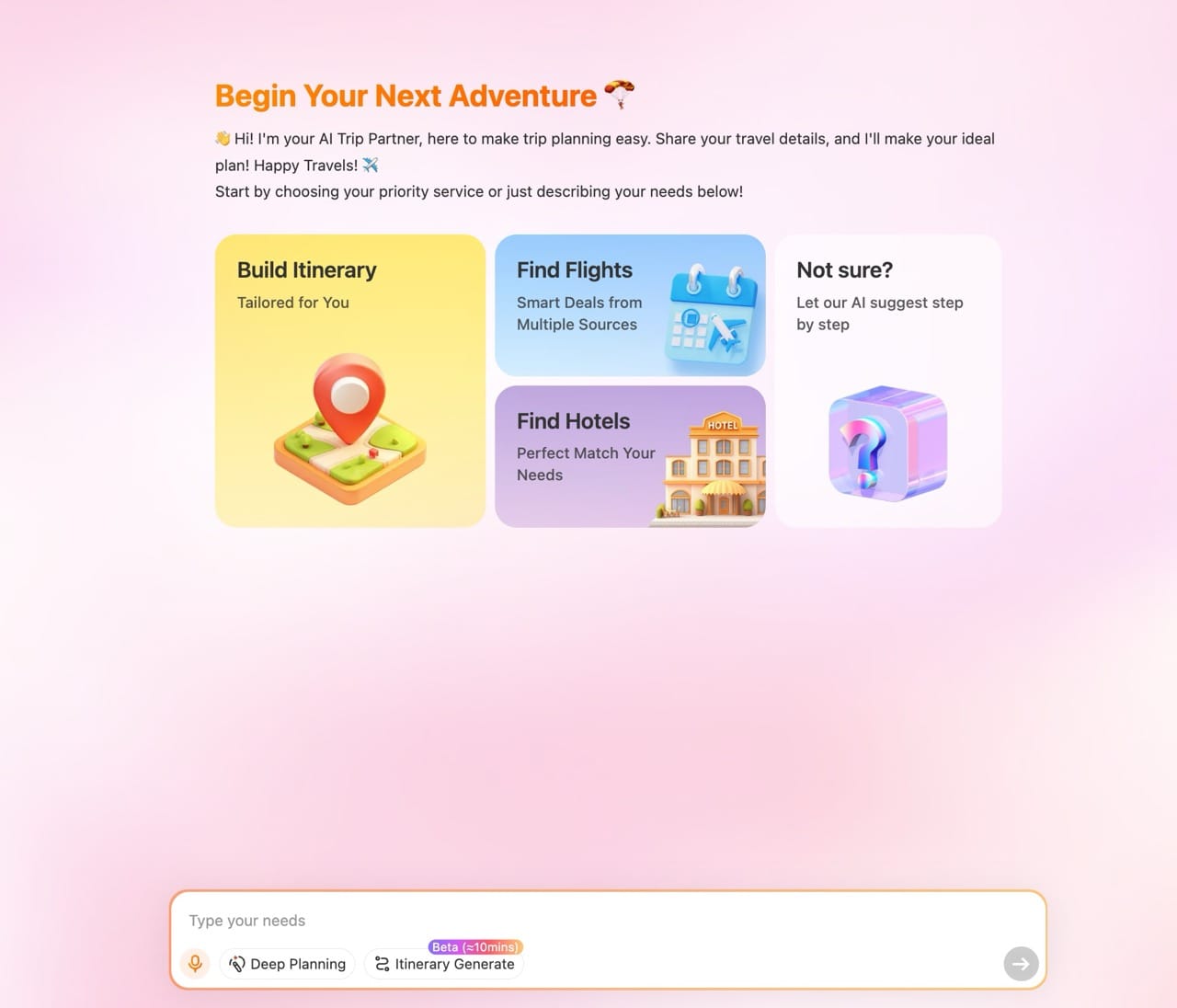
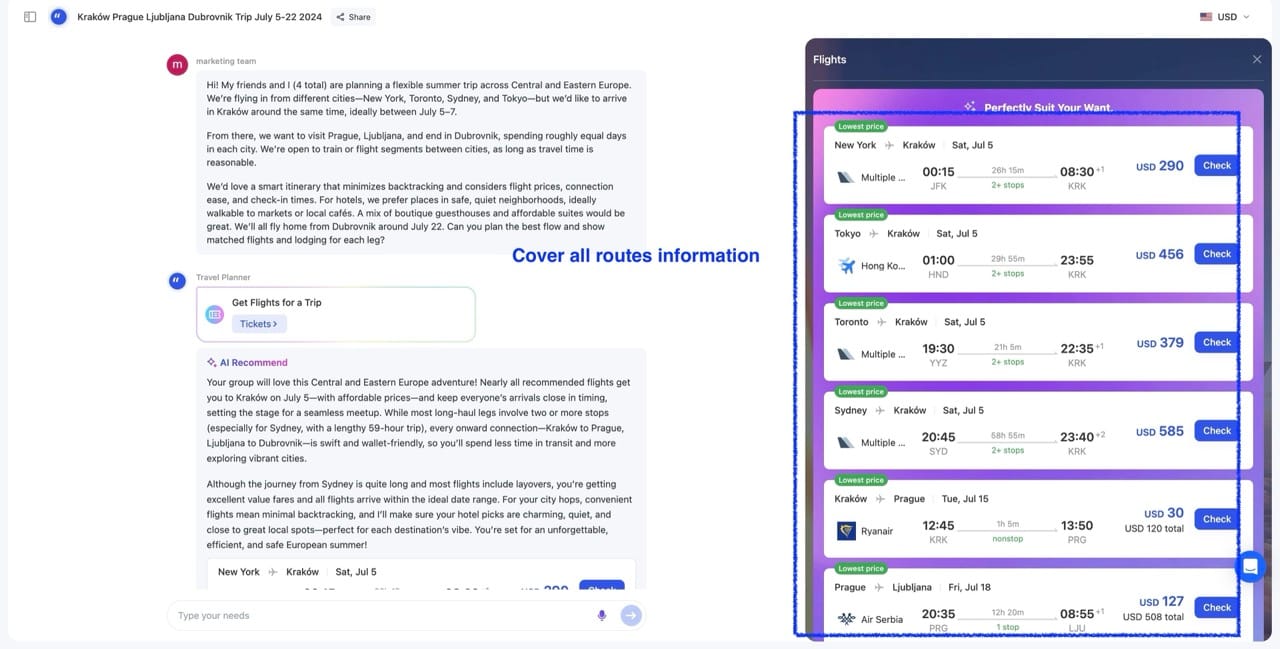
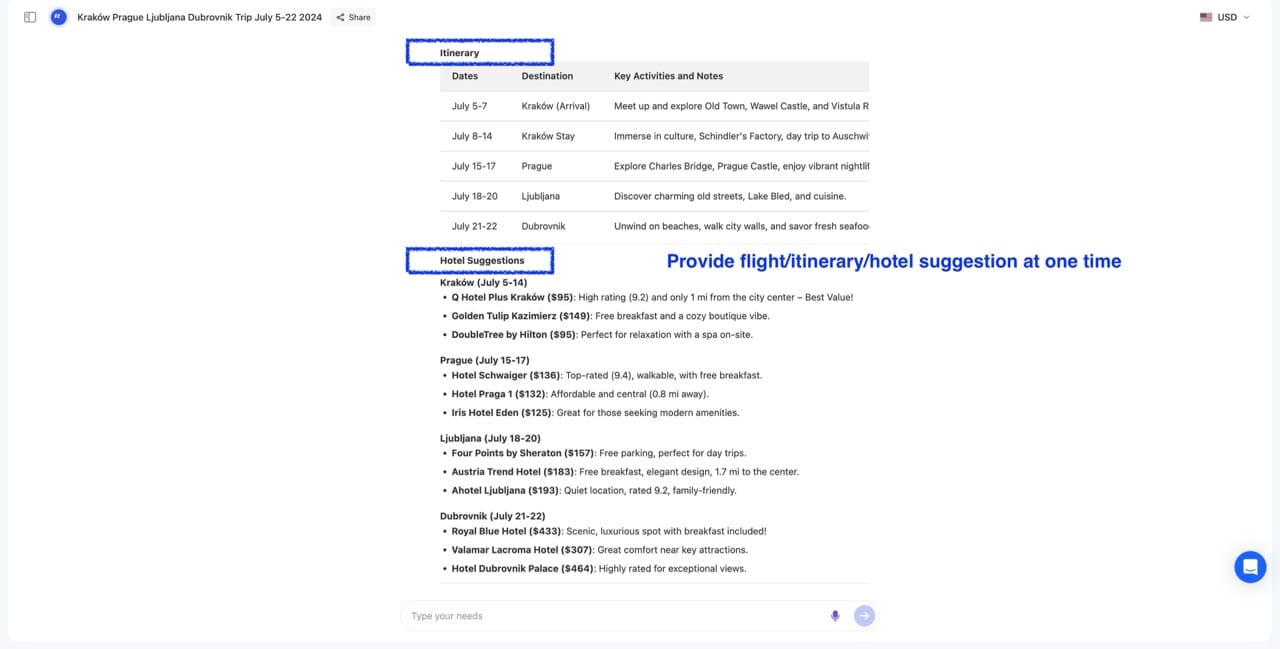
MindTrip: Best for itinerary visuals and activity planning—but lacks logistics
MindTrip shines as a planner AI for people who love structured, hour-by-hour itineraries. It created a full daily plan with suggestions for dining, sightseeing, and even mapped locations on an interactive city grid.
If your priority is knowing exactly what to do and when, MindTrip is fantastic for that.
However, it faltered on actual AI travel booking capabilities. Despite follow-up questions, it only offered one outbound flight (Kraków → Dubrovnik) and didn’t account for our four friends flying in from separate cities. No AI trip planner should miss that.
In a nutshell, it’s great for crafting activities—but don’t rely on it for flights or hotels.
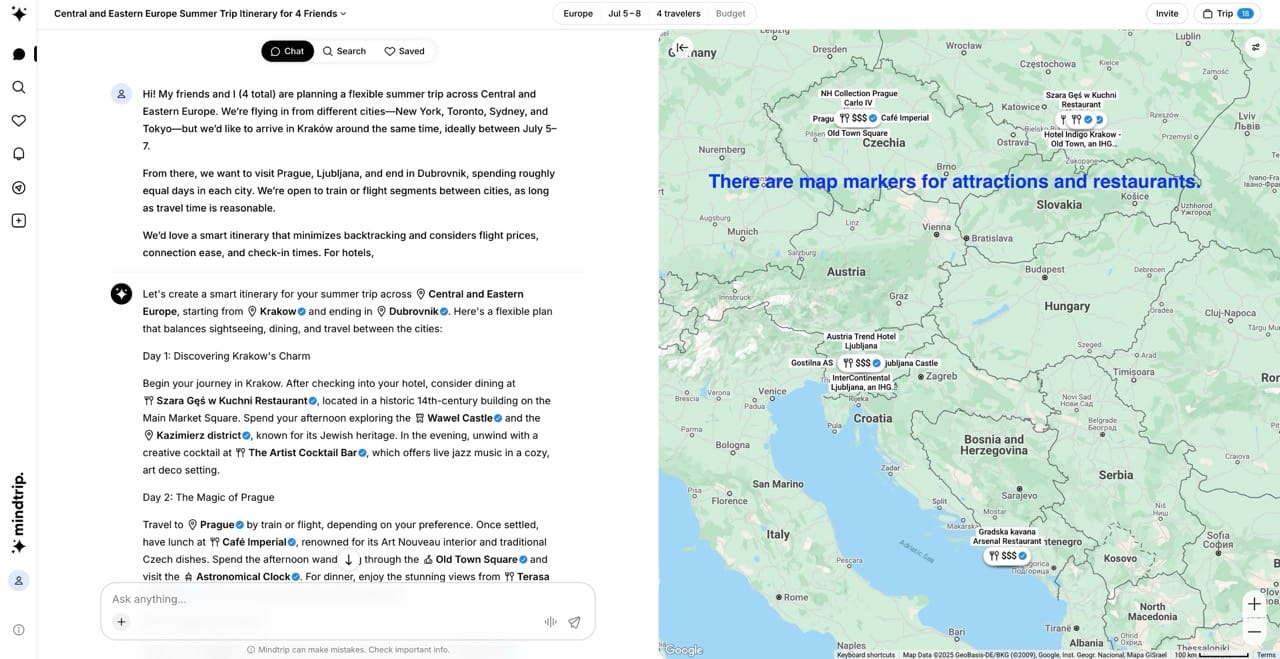
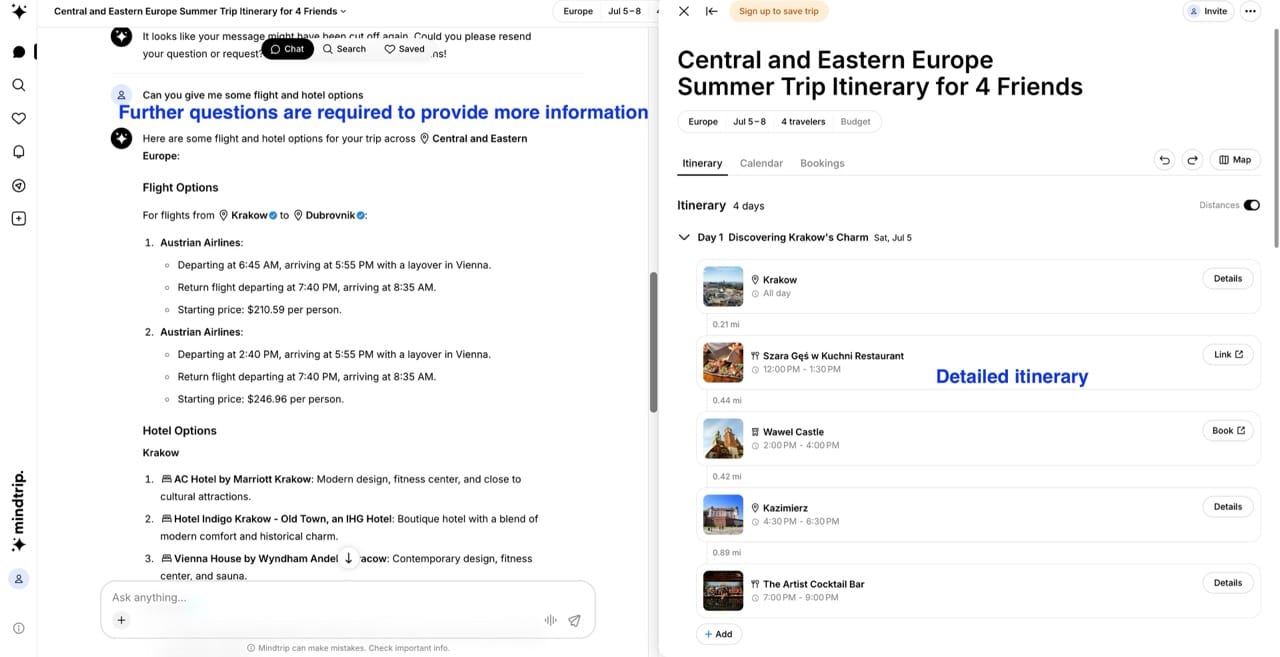
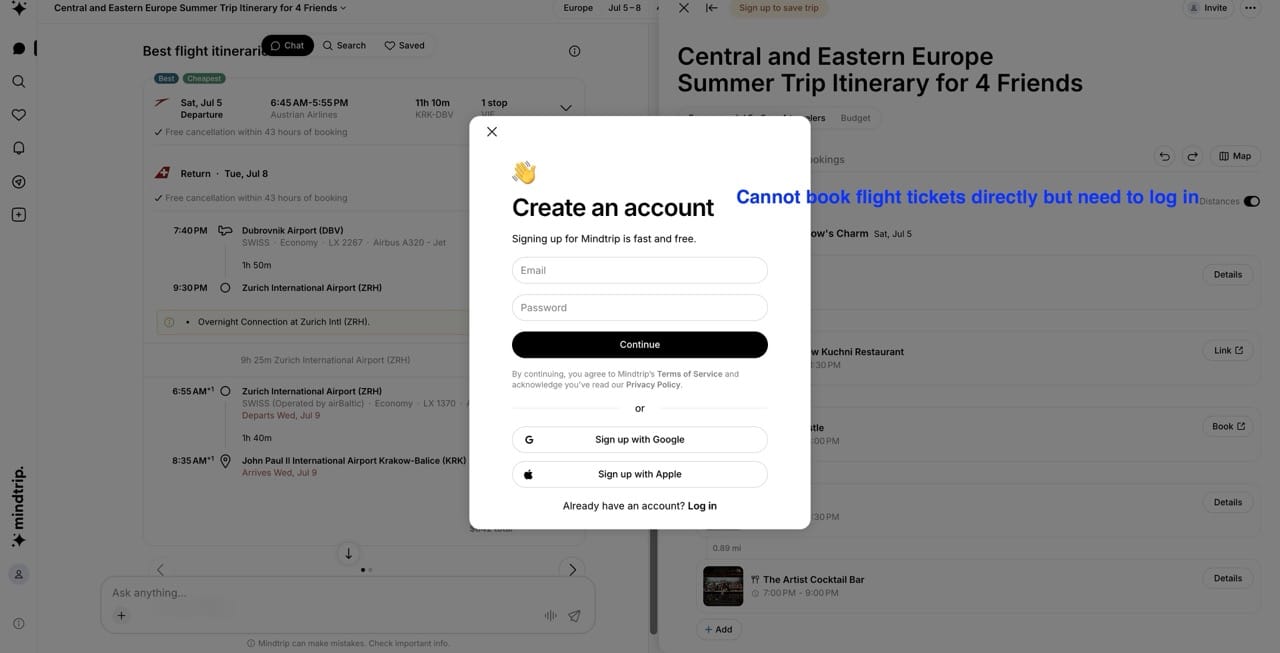
Vacay: Lightweight and fast, but not built for group complexity
Vacay feels more like a casual travel agent than a full AI-powered trip planning platform. It’s user-friendly and responsive, but gave too few options—barely any flight results, no route optimization, and limited hotels.
It didn’t act as a real AI trip planner—more like a blog-inspired helper.
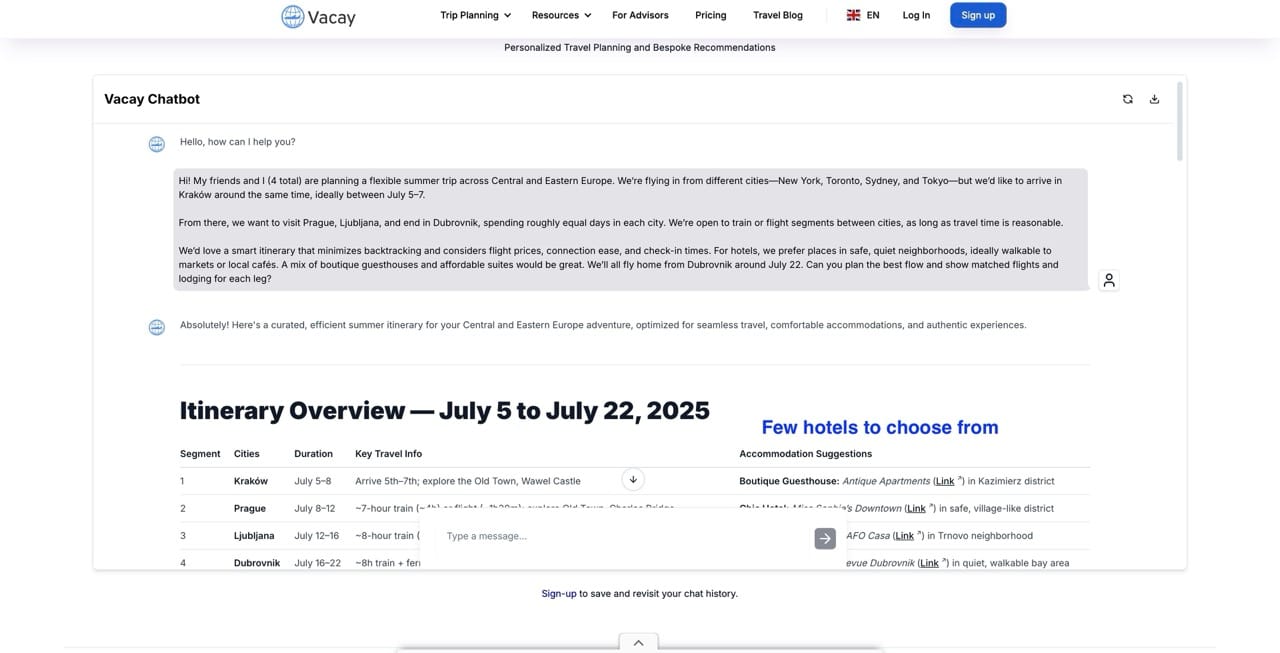
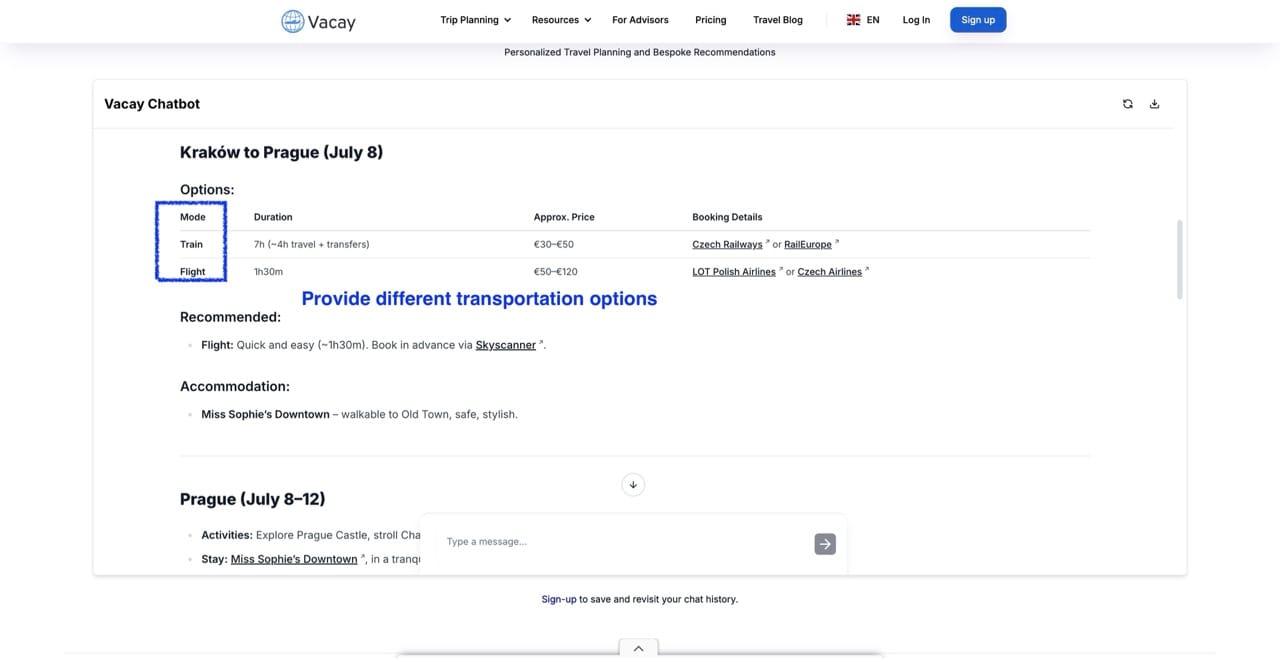
Roam Around: Great for vibe-checking cities, not for planning logistics
Roam Around is more focused on curating local experiences. It gave great write-ups for each city—like what markets to visit in Ljubljana or where to catch sunset views in Prague—but ignored most of the logistical aspects.
It didn’t address our multi-origin flights, didn’t generate a route or flight suggestions, and offered hotel ideas without booking links or pricing details.
Good for inspiration. Not great for trip execution.
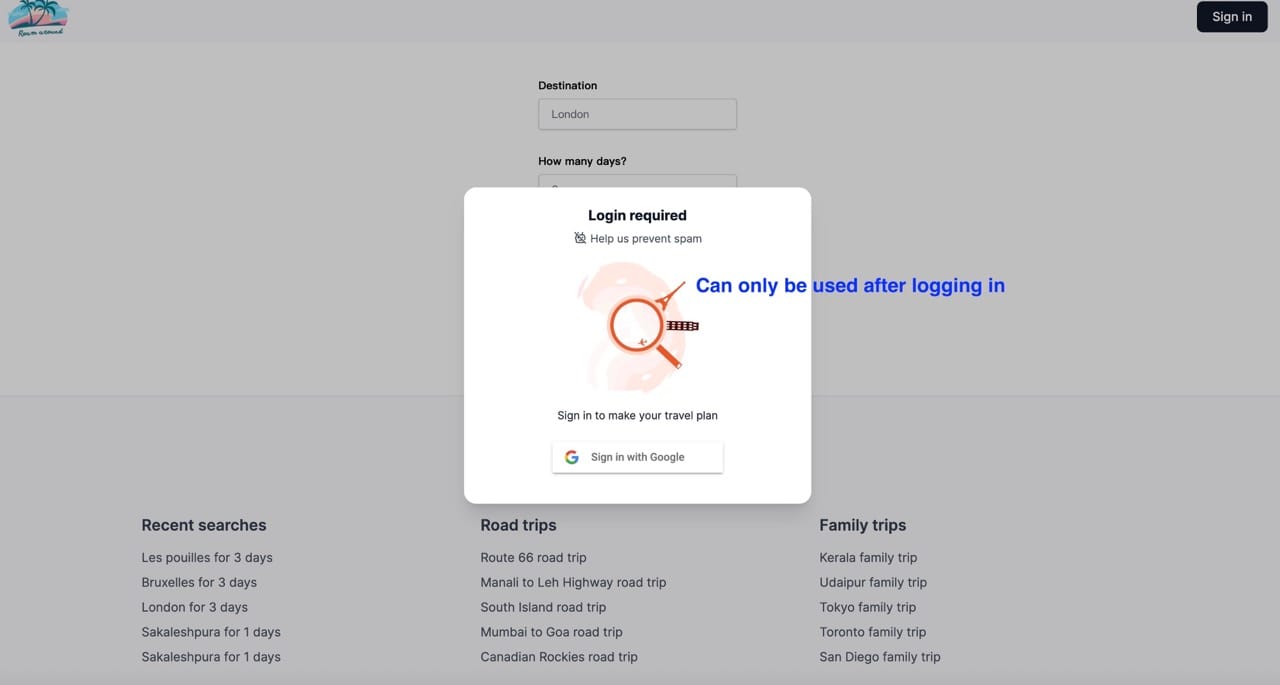
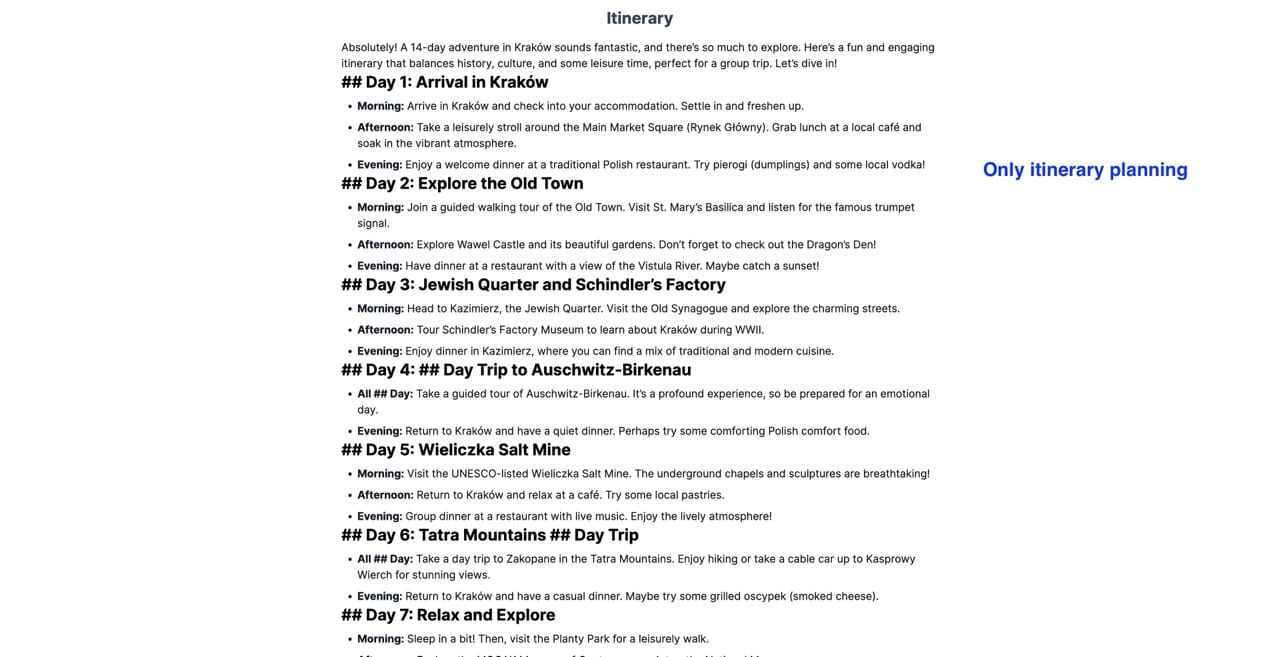
Layla: Strong chat UI, weak on multi-person scenarios
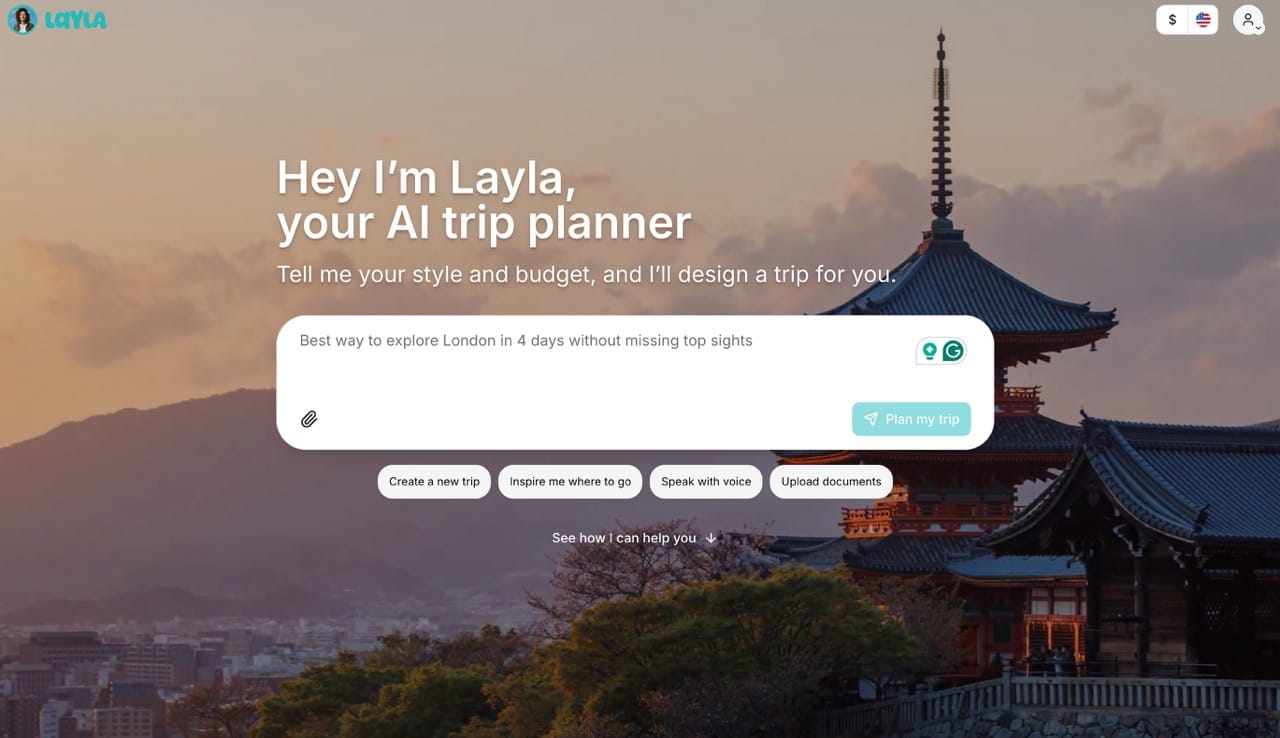
Layla is an AI travel assistant that works more like a chatbot. It’s intuitive and fast, and I liked its tone. But it handled the prompt like a personal trip for one traveler.
It gave a basic route and some accommodation ideas, but didn’t attempt to coordinate flights from different cities, which is arguably the hardest part of this whole trip.
You might love it for simple weekend trips or one-way flight help, but for group planning, it’s not quite ready.
Final Verdict
If your travel plan includes multiple people, from multiple places, visiting multiple cities—iMean is the clear winner.
It’s the only AI that fully understood the nuance of the request and provided a structured, bookable response across every part of the journey. MindTrip comes in second for its visual itinerary power, but it can’t yet handle flights or bookings at scale.
The rest may be helpful for early-stage inspiration, but not for executing a complete trip.
Plan your next complex trip the easy way!
Let iMean AI coordinate flights, routes, and hotels for you and your travel group—accurate, fast, and effortless.





